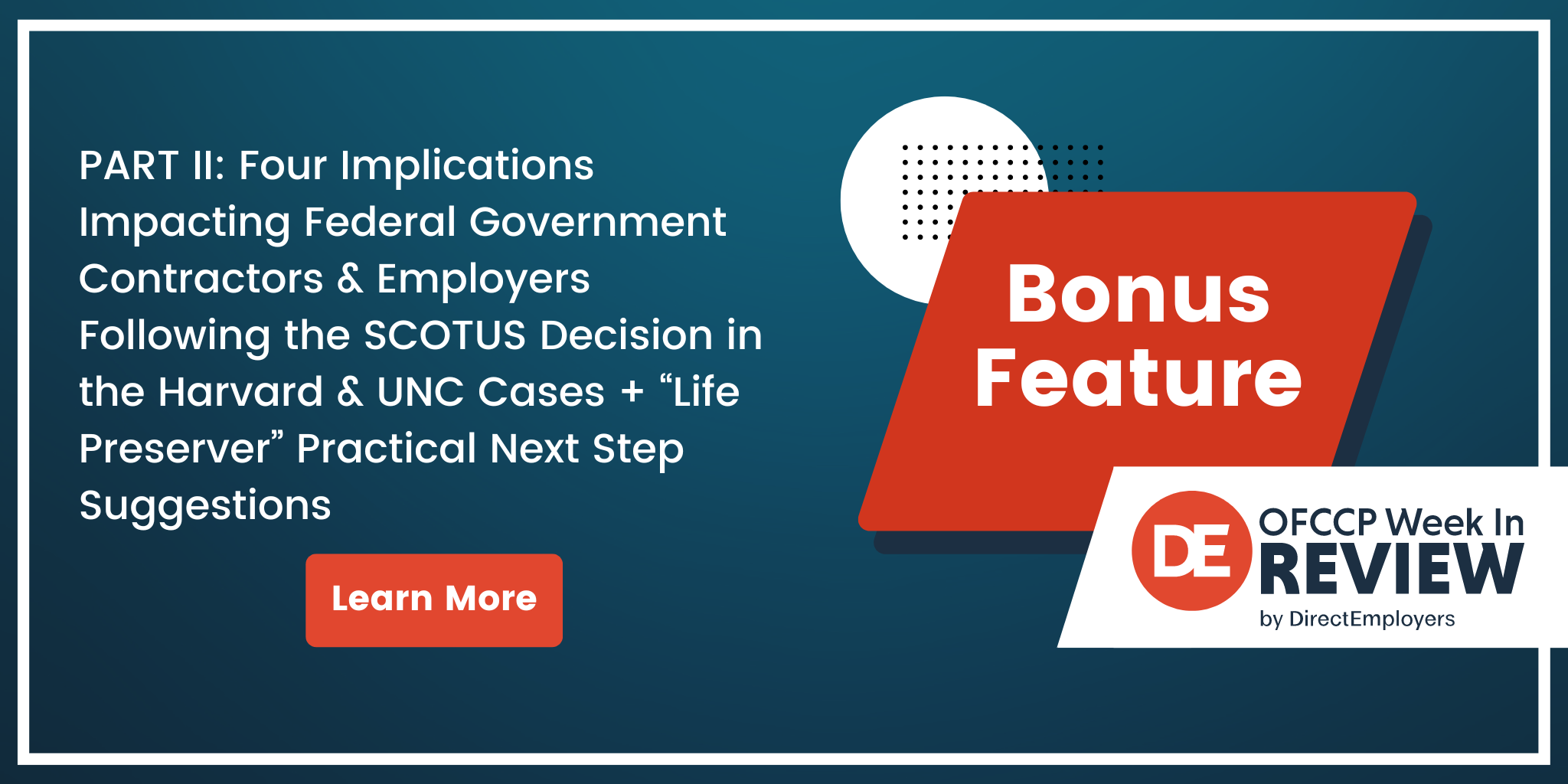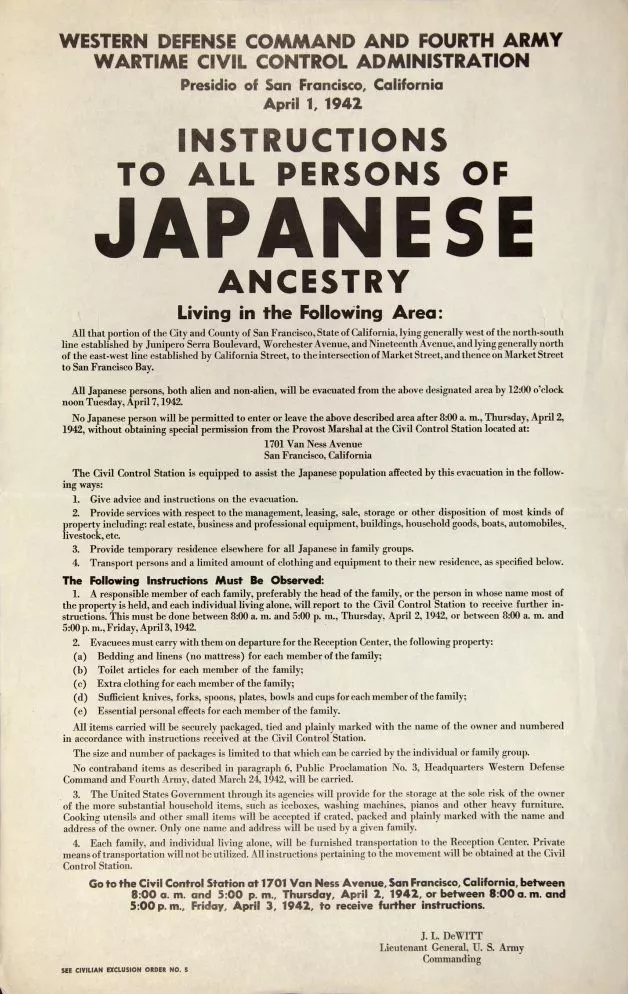
- FAR Council’s Interim Rule Banned TikTok on Federal Government Contractor Devices
- Part II: Four Implications Impacting Federal Government Contractors & Employers Following the SCOTUS Decision in the Harvard & UNC Cases + “Life Preserver” Practical Next Step Suggestions
- Kotagal Barely Squeaked by Her Senate Confirmation Vote to Now Be the Third Democrat on the Five-Member Bipartisan EEOC Commission
- Julie Su Nomination Is Now Dead
- U.S. House Passed Defense Funding Bill Without AOC’s Amendment to Shift Existing DoD Pre-Offer Criminal History Inquiries Authority to OFCCP
- In Brief
- Looking Ahead: Upcoming Date Reminders
Friday, June 2, 2023: FAR Council’s Interim Rule Banned TikTok on Federal Government Contractor Devices
August 1 Deadline for Public Comments on Interim Rule
Ban Implemented Due to National Security Concerns

The Interim Rule applies to all federal contracts, including contracts at or below the simplified acquisition threshold, contracts for commercial products (including commercially available off-the-shelf items), and for commercial services.
Public comments on the Interim Rule are due on Tuesday, August 1, 2023, and stakeholders can submit them here.
How We Got Here
The FAR Council agencies – the Department of Defense, the Government Services Administration, and the National Aeronautical and Space Administration – issue and revise the FAR, the principal set of rules in the Federal Acquisition Regulations System, which govern the acquisition process through which the federal Government purchases goods and services. Previously in February, the White House’s Office of Management and Budget (“OMB”) directed federal agencies – via OMB Memorandum M–23–13 – to get TikTok off their networks. This memorandum provided implementing guidance for Section 102 of Division R of the 2023 Consolidated Appropriations Act (passed in December 2022), which is entitled the “No TikTok on Government Devices Act.” The FAR Council Interim Rule implements both the statute and the OMBS implementing guidance under OMB Memorandum M–23–13.
National Security Measure
The FAR Council noted that this Interim Rule was implemented as a national security measure to protect government information and information and communication technology systems.
On Monday, July 10, 2023, the Pew Research Center issued a Report finding that about six-in-ten U.S. Adults (59 percent) see TikTok as a major or minor threat to national security in the United States. Moreover, an earlier survey released in March showed that Americans support the U.S. government banning TikTok by a two-to-one margin. For an informative discussion on recent government efforts regarding TikTok and other applications of concern, see this April 2023 article from Politico.
Monday, July 10, 2023: Part II: Four Implications Impacting Federal Government Contractors & Employers Following the SCOTUS Decision in the Harvard & UNC Cases + “Life Preserver” Practical Next Step Suggestions

Today’s topic is “GOALS ARE NOT UNLAWFUL QUOTAS” IF, IF, IF federal contractors do not turn them into race and gender-based preferential employment actions. If properly implemented, the Affirmative Action OFCCP’s (“Office of Federal Contract Compliance Programs”) Rules require federal contractors to undertake is NOT the “Affirmative Action” the SCOTUS struck down as unlawful discrimination violative of both Title VI of the 1964 Civil Rights Act and the Equal Protection Clause of the 14th Amendment in the Harvard and UNC case decision. See my recent Blog here discussing the SCOTUS’ Harvard/UNC case decision.
Unfortunately, some contractors convert their “Goals” into unlawful “Quotas” either (a) inadvertently (negligently), (b) because they are misinformed, or (c) intentionally do so…
Thursday, July 13, 2023: Kotagal Barely Squeaked by Her Senate Confirmation Vote to Now Be the Third Democrat on the Five-Member Bipartisan EEOC Commission
Evening Before Confirmation Vote, VP Harris Made History with Tie-Breaker Vote to End Debate
Democrats Will Now Have Majority on Commission

Senator Manchin Went Against Party to Oppose Nomination
Republicans were united in voting against the nomination, while Senator Joe Manchin was the sole Democrat voting against it. While Senator Manchin did not release a formal statement explaining his decision, he reportedly told several news organizations (including Law360 and Bloomberg) the following:
“It is clear from her prior work with far-left progressive organizations, including a group that wants to ban fossil fuels, that Ms. Kotagal does not represent West Virginia values and would prioritize a partisan agenda over creating commonsense, bipartisan solutions that bring our nation forward.
Ultimately, I did not support Ms. Kotagal because the EEOC should remain as free as possible of partisan ideologies when making important decisions for America’s workers and businesses.”
VP Tied for Tie-Breaker
With her tie-breaking vote to end the debate on Wednesday, VP Harris matched the record for most tie-breaking votes cast, at 31, in the Senate by a VP. The only other VP to cast so many was John C. Calhoun, vice president from 1825 to 1832.
Four Senators Missing in Action for Confirmation Vote
Three Republicans and one Democrat – Senators Josh Hawley, R-MO, J.D. Vance, R-OH, Marsha Blackburn, R-TN, and John Fetterman, D-PA – were absent for Thursday’s confirmation vote. All four had voted on the Wednesday motion to end debate on the nomination.
Republicans Hawley and Blackburn are expecting vigorous challengers to their Senate re-election campaigns next year and may have decided not to create issues for moderate voters by voting against Ms. Kotagal, especially since she was going to win her confirmation vote, even if it again took VP Harris to vote the tie-breaker. Senators Vance and Fetterman may have decided it was not worth showing up in the Senate Chamber to vote since their absences could not affect the vote if they knew one or more Republicans were not going to appear for the vote. (Ms. Kotagal needed to win the majority of those Senators voting…not the majority of the 100 Senators currently seated in the U.S. Senate. Had the three Republicans voted against Ms. Kotagal’s confirmation and Senator Fetterman had not voted, Ms. Kotagal’s confirmation vote would have failed 50-Nay and 49-Yea).
So, Why All the Drama Over an EEOC Commissioner?
It’s all about the three EEOC Democrat Commissioners now being able to drive through Biden White House Policy on Civil Rights through the otherwise bi-partisan Commission. The employer community is now bracing for the Commission to start issuing policy statements and interpretations of the civil rights statutes it enforces. The Chair of the EEOC, Charlotte Burrows, can be counted on crediting President Biden to help him rally his base of voters for next year’s Fall 2024 Presidential and Congressional elections.
The biggest policy on the horizon, indeed, is one the White House intends as a central campaign theme to mobilize female voters to the Democrat side of the ledger. The White House campaign strategy is to attack employers as wage discriminators against women and Democrats as the primary defenders of women as victims of that wage discrimination.
Companies are already taking bets on how long it will now take the three Democrat EEOC Commissioners to push through the familiar “Component 2 Hours Worked and Pay Data Reporting” to accompany the Commission’s annual requirement that employers with 100 or more employees file EEO-1 Reports of the race, sex and national origin of their employees sorted by ten “categories” running the gamut of employees (from top to bottom) from “Executive/Senior Level Officials and Managers” down to “Service Workers,” usually the lowest paid employees in U.S. workforces. The Obama Administration championed such reporting that the Trump Administration stopped, but not before employers spent an estimated 3/4ths of a Billion dollars filing reports eventually found useless to federal government enforcement efforts. We have reported the prior EEO-1 Component 2 debacle in numerous Week In Review stories and Blogs including these more important ones you will find here, here, and here. Alternatively, you may use the “Search Site” search tool on the right-hand side of every Week In Review publication for even more stories on this topic.
How We Got Here
President Biden first nominated Ms. Kotagal on April 5, 2022, to replace Commissioner (and former Chair) Janet Dhillon on the Commission. We provided more background on Ms. Kotagal here. With Republican Commissioner Dhillon’s resignation in early December 2022 (which we reported here), the five Member bi-partisan Commission became evenly staffed with 2 Democrats and 2 Republicans.
In June 2022, the President also nominated Karla Gilbride for the position of EEOC General Counsel. The Senate failed to approve either the Kotagal or Gilbride nominations in the previous (117th) Congress which adjourned on January 3rd of this year as the 118th Congress was seated. Nonetheless, President Biden re-nominated them both in January. In February, the Senate Committee on Health, Education, Labor, and Pensions (“HELP”) reported favorably on Gilbride’s nomination (our story is here). In March, Senate HELP Committee voted to advance Kotagal’s nomination to fill the fifth EEOC Commissioner slot (see our story here.) Ms. Gilbride’s second and current nomination remains stalled in the U.S. Senate at this writing even though Ms. Kotagal has now wriggled free.
Current Commission Chair Also Now Awaiting Confirmation for Third Term
Last month, we reported that President Biden nominated the current Commission Chair Charlotte A. Burrows for a third term on the Commission. Burrows was initially nominated to serve as a Commissioner in 2014 (by President Obama) and then re-nominated in 2019 (by President Trump). If confirmed, Ms. Burrows’ third term will expire on July 1, 2028. Her current term expires on July 1, 2023. However, under Commission Rules, sitting Commissioners may remain in office until the end of the calendar year in which their term of office terms out, if the U.S. Senate does not previously confirm the President’s Nominee to replace a departing Commissioner. Accordingly, once Ms. Kotagal is sworn in as a Commissioner, the Democrats will have a majority on the Commission through at least the end of the year even if the Senate fails to confirm Burrow’s nomination for a third term.
Thursday, July 13, 2023: Julie Su Nomination Is Now Dead
However, White House is Actively Attempting Defibrillation to Revive the Nomination
Three things happened in quick succession last Thursday.
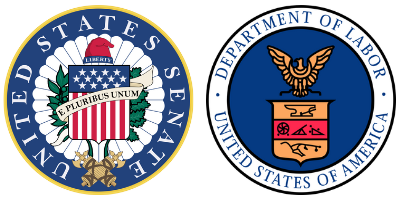
As a result of Senator Manchin’s announcement, the informal vote tally then sat at:
- 47-Yea
- 50-Nay (all 49 Republicans + Manchin),
- 2 Independents (Krysten Sinema and Angus King) not voting; and
- 1 Democrat not voting
Ms. Su needs, of course, a majority of U.S. Senators present and voting for her Nomination to be Confirmed. However, if Senator Schumer could “twist the arms” of the three “fence sitters” to vote for Ms. Su, he would arrive at a 50-50 tie. If so, Senator Schumer could then summons Vice President Harris to arrive in the Senate Chamber to exercise her right (wearing her other hat as the President of the U.S. Senate) to cast a tie-breaking vote in favor of President Biden’s Cabinet nominee.
For the record, here is Senator Manchin’s stated rationale for opposing Julie Su’s nomination:
“‘I believe the person leading the U.S. Department of Labor should have the experience to collaboratively lead both labor and industry to forge compromises acceptable to both parties,’” Manchin said.
“‘While her credentials and qualifications are impressive, I have genuine concerns that Julie Su’s more progressive background prevents her from doing this and for that reason[,] I cannot support her nomination to serve as Secretary of Labor.’”
Second, (and this is the real news) in response to the Manchin announcement, The White House announced that Senator Sinema (I-AZ) (a former Democrat until December of last year…important to the story), was also opposed to Julie Su’s Nomination. That was NOT previously known as Senator Sinema was on the public record of having not decided and has a policy, her spokesperson explained, of not revealing her position before a Senate vote. If the White House’s announcement of Senator Sinema’s opposition is true, as the passage of time has now confirmed it to be, the Manchin/Sinema announcements together just killed Julie Su’s nomination with an informal vote count that would look like this:
- 47-Yea
- 51-Nay (all 49 Republicans + Manchin (term ends in 2024, but has not announced his plans to run or retire) + Sinema (up for re-election in 2024)),
- 1 Independent [King (I-ME)] vote undeclared (up for re-election in 2024); and
- 1 Democrat [Jon Tester (D-MT)] vote undeclared (up for re-election in 2024]
Here is what happened with the Sinema outing. Following Manchin’s announcement, Politico reporters reached out to the White House for comment. The White House let the “cat out of the bag” that Senator Sinema was opposed to Julie Su’s nomination. That was not known until the White House reported Senator Sinema’s position since the Senator had not publicly reported her position. According to Politico:
“A White House official on Thursday said President Joe Biden would continue to fight for Su’s confirmation, calling his support for her “unwavering.” ‘We hope,’ the official added, ‘Senator Manchin and Senator Sinema reconsider their position.’”
The official’s comments came just minutes after Senator Manchin announced he would oppose Ms. Su’s nomination, suggesting the White House knew that Senator Manchin’s announcement was coming and that it had carefully prepared a response.
Note 1: Note the verb in the last sentence from the White House comment to Politico: “reconsider.”
Note 2: As of this writing, updated through Noon Monday EASTERN time (the WIR’s last, last deadline), Senator Sinema has NOT corrected the White House’s statement despite the passage of time since Thursday afternoon, all day Friday, the two-day weekend, and half of today (Monday) for the Senator to have done so.
Note 3: The White House has NOT retracted its statement to Politico.
So, here’s the picture to summarize where we are at with the Su Nomination:
The White House “Took the Gloves Off” and Purposely “Outed” Senator Sinema
Senator Sinema has been publicly undeclared on the Julie Su vote until the White House announcement last Thursday of the Senator’s position. The White House publicly announced Senator Sinema’s opposition obviously as a “controlled leak.” Such “outings” are not uncommon in Washington D.C. political wars. Such outings occur when the leaker’s back is against the wall on a policy issue and the leaker feels that public opinion may offer the leaker better momentum and a last-minute surge opportunity to reverse its currently losing position. So, let’s see what happened next as the THIRD Thursday event in this “inside the beltway” political drama.
Third, Politico reported that Senator Mark Kelly (D-AZ) said in an interview on Thursday that he will support the Julie Su nomination. Senator Kelly had previously also been mum on his support of Julie Su until last Thursday. Do you now see the orchestration around this confirmation vote? You can now expect that The White House will work through Senator Kelly to bring pressure within Arizona political channels on Senator Sinema to flip her position and support Julie Su at long last. The White House is not giving up despite the fact that the score is against it and regulation time has expired. The White House has nonetheless self-declared an “overtime.” So, the drama continues.
Meanwhile, the other “fence sitters” [Senators Jon Tester (D-MT) and Angus King (I-ME)], have still not indicated publicly how they would vote. Now, they do not need to do so: there is no vote on the Senate Floor, nor is one likely absent a Republican defection or a Manchin or Sinema about-face.
So Why All the Political Fuss and White House Drama Over Julie Su?
After all, few outside of California ever heard of Julie Su before President Biden nominated her earlier this year to be the next Secretary of Labor to replace Marty Walsh who resigned spur-of the-moment in anger at the White House? Julie Su had earlier very begrudgingly become Secretary Walsh’s Deputy at the U.S. Department of Labor only after she had waged a long, fierce and unsuccessful battle to beat Marty Walsh to the Secretary of Labor appointment. In the process, Julie Su rallied all of the nationwide Asian-American civil rights groups on her behalf pitting them noisily against the unions supporting Marty Walsh: a Democrat President’s nightmare.
If the White House’s outing of Senator Sinema was deliberate–as it very much appears was the case, even at the risk of further offending Senator Sinema and estranging her further from Democrats—it very much shows:
(a) the desperation of an exasperated White House to confirm no less than a Cabinet Member to the President’s staff, and
(b) that 2024 election positioning is already playing out in Washington D.C. and affecting even major White House policy initiatives. NOTE: The White House backs Julie Su primarily because she is the face of its political strategy to woo Asian-Americans to the Democrat Party. Also, there are two very delicate timing problems for the White House in all of this.
First, the White House is preparing to unleash a political strategy for its 2024 Presidential and Democrat party platform focusing again on racial/national origin/gender “identity politics” …with a major sub-focus on Asian-Americans (and women, of course…especially given the Roe reversal).
Second, The White House’s interest in Julie Su is also particularly important at this moment in history in the minds of White House political strategists. This is because of the Democrat’s decision to support racial and national origin “quotas” in response to the Harvard/UNC SCOTUS case decision. However, a very broad base of Asian-Americans fiercely oppose quotas, were a driving legal, political and monetary source of support for the lawsuits against Harvard and UNC, and unconditionally support merit decision-making.
The vast majority of Asian-Americans are strongly culturally and politically opposed to race and national-origin based government decision-making. After all, there are tens of thousands of Asian-Americans still alive today who were among the 120,000+ Japanese Americans on the West Coast the federal government declared to be “enemy-aliens,” including U.S. citizens of Japanese ancestry, only because of their Japanese ancestry. The U.S. Department of the Army interned all West-Coast persons of Japanese Ancestry (although not Germans or Italians), without hearings or trials, from early 1942 by Executive Order 9066. President Franklin Delano Roosevelt signed the Order on February 19, 1942.
And Chinese Americans fared little better if not worse since Chinese immigrants lived through a century of violent racist attacks, lawful killings from Seattle to San Diego, intolerable working conditions, forced relocations and forced segregation in all facets of society. See the Library of Congress’ report titled “Immigration and Relocation in U.S. History”, for example. (The Chinatowns in many major inner cities in the U.S. are living memorials to that segregation…including a majestic Chinatown in downtown Washington D.C. within sight of both The White House and the U.S. Capitol).
So, the Biden White House is trying to salvage at least the statement to the Asian- American Community that it had “pulled out every stop” in its power to get an Asian-American appointed to a Cabinet position in the Biden Administration. The outing of Senator Sinema’s opposition to Julie Su’s nomination is thus the second to the “last ditch effort” to get Julie Su nominated by letting Senator Sinema’s Arizona liberal constituents know that the Senator was opposed to Julie Su.
You do not need to be a student of political science to know that the “very last-ditch effort” the White House will unleash to salvage the Julie Su nomination is to increase the political pressure on Senator Sinema. The White House will not stop until either: (a) Senator Sinema breaks and changes her mind, or (b) the White House can say to Asian-American leaders that it is beyond cavil that President Biden never gave up in his quest on behalf of Asian-Americans and did everything possible to resuscitate Julie Su’s nomination.
Ms. Su Remains Acting Secretary for Foreseeable Future
Last week, we reported that House Education & Workforce Committee Chair Virginia Foxx (R-NC) sought a formal opinion from the U.S. Government Accountability Office (“GAO”) as to how long Ms. Su may legally serve as Acting Secretary of Labor. Ms. Su has been the Acting Secretary of Labor since former Labor Secretary Marty Walsh left the Department of Labor on March 11, 2023. Earlier, she had become the Deputy Secretary of Labor following her Senate confirmation for that role on July 13, 2021.
Prior to last week, we most recently wrote about the continuing Su nomination drama here on June 12, 2023. (For further, recent discussion on this nomination and other pending nominations, see our story here.)
Friday, July 14, 2023: U.S. House Passed Defense Funding Bill Without AOC’s Amendment to Shift Existing DoD Pre-Offer Criminal History Inquiries Authority to OFCCP
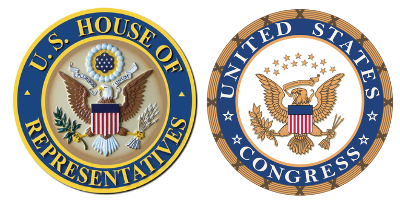
That amendment would have shifted the enforcement authority from the U.S. Department of Defense (“DoD”) to OFCCP of an existing federal statute prohibiting federal contractors from undertaking criminal history inquiries before extending a conditional offer of employment.
Note: Currently, the U.S. Department of Defense has the authority – pursuant to 41 U.S.C. Section 4714 titled: “Prohibition on criminal history inquiries by contractors prior to conditional offer” – to enforce the prohibition on federal contractors from making pre-offer criminal history inquiries of workers.
Representatives Alexandria Ocasio-Cortez (“AOC”) (D-NY), Sara Jacobs (D-CA), Bobby Scott (D-VA), and Nancy Mace (R-SC) had proposed this amendment (#1168) to allow OFCCP “to establish compliance procedures for the prohibition on criminal history inquiries by Federal contractors and allows the Department of Labor to investigate compliance by a contractor by conducting a compliance evaluation.”
In a press release on Thursday, Representative Ocasio-Cortez explained that her proposed amendment was similar to the failed Fair Chance Improvement Act that she introduced in August 2022. Frustrated that DoD is not investigating federal contractors violating the prohibition on pre-offer criminal history inquiries, “AOC” explained her motivation behind the now failed Amendment to the NDAA:
“Currently, there is a prohibition on criminal history inquiries by Defense and Federal contractors. However, the Department of Defense, which has the authority to investigate federal contractors who are violating this law, does not have the proper infrastructure to carry out the requirement. This amendment would shift the regulatory authority to the Department of Labor’s Office of Federal Contract Compliance Programs to establish compliance procedures and determine whether a contractor has committed any violations. The Department of Defense has expressed its support for the amendment.”
The initial House NDAA Bill passed on a near-party-line vote – 219-210 – with four Republicans voting against the bill and four Democrats voting for it. However, it is still a long road before the NDAA for FY 2024 is finalized. The full Senate has yet to vote on its initial version of the bill (S. 2226) but may do so by the end of this month. The two legislative chambers will also have to resolve any differences in their measures before passing a final version to send to President Biden. In the meantime, various amendments could be added (including the one discussed above) or other language changed or removed entirely before the two chambers finalize the legislation.
So, this idea of shifting pre-offer criminal history inquiry investigative authority away from DoD to OFCCP is not dead—especially with DoD endorsing the idea: it has just lost Round 1 of a 3-round fight and is currently comatose.
In Brief
Wednesday, July 12, 2023: U.S. DOL’s WHD Submitted Proposed Minimum Wage & Overtime Rule for OMB Review
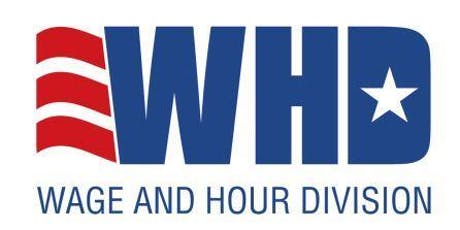
The WHD will not publish the Proposed Rule for public notice and comment until after the OMB completes its initial review, but the agency’s submission to OMB is an indicator that it could be published soon. In the Spring Regulatory Agenda, the WHD set August 2023 as the target publication date for the proposal.
Wednesday, July 12, 2023: Senate HELP Committee Advanced Wilcox Nomination for Another NLRB Term
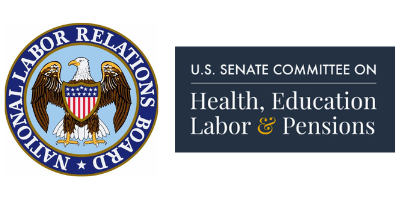
In our report on the nomination last month, we noted that Ms. Wilcox has served as a Member of the NLRB since August 4, 2021. Because she stepped in to complete the existing term of former NLRB Member Mark Gaston Pearce (vacated in 2018), her first term will not be for a full five-year term but instead will expire in only two years, on August 27, 2023. If the Senate confirms the nomination, her second term will be a full five-year term.
Looking Ahead:
Upcoming Date Reminders
June 2023: OFCCP’s current target date (now overdue) for its Final Rule on Pre-Enforcement Notice & Conciliation Procedures (RIN: 1250-AA14)
June 2023: U.S. DOL WHD’s current target date (now overdue) to publish its Final Rule on Nondisplacement of Qualified Workers Under Service Contracts (RIN: 1235-AA42)
June 2023: U.S. DOL WHD’s current target date (now overdue) for its Final Rule on Updating the Davis-Bacon and Related Acts Regulations (RIN: 1235-AA40)
June 2023: U.S. OSHA’s current target date (now overdue) to publish its Final Rule on Occupational Exposure to COVID-19 in Healthcare Settings (RIN: 1218-AD36)
NEW Thursday, July 27, 2023 (2:00 pm – 3:00 pm ET): DE Masterclass Employment Law Roundtable | Compliance to Recruitment (Compliance people: Bring your TA Team)
August 2023: U.S. DOL WHD’s current target date for its Final Rule on Employee or Independent Contractor Classification Under the Fair Labor Standards Act (RIN: 1235-AA43)
NEW August 2023: U.S. DOL WHD’s current target date for its Notice of Proposed Rulemaking on Defining and Delimiting the Exemptions for Executive, Administrative, Professional, Outside Sales and Computer Employees (RIN: 1235-AA39) (The WHD submitted this proposal to the OMB on July 12, 2023)
August 2023: U.S. NLRB’s target date for its Direct Final Rule on Quickie Election Procedures (RIN: 3142-AA18)
August 2023: U.S. NLRB’s current target date for its Final Rule on Standard for Determining Joint-Employer Status (under the NLRA) (RIN: 3142-AA21)
August 2023: U.S. NLRB’s current target date for its Final Election Protection Rule (RIN: 3142-AA22)
August 2023: U.S. DOL’s OASAM’s current target date to publish Proposed Rule on “Revision of the Regulations Implementing Section 188 of the Workforce Innovation and Opportunity Act (WIOA) to Clarify Nondiscrimination and Equal Opportunity Requirements and Obligations Related to Sex” (RIN: 1291-AA44)
NEW Tuesday, August 1, 2023: Deadline for public comments on FAR Council’s Interim Rule Banning TikTok on Government Contractor Devices
Friday, August 11, 2023: Comments due on the EEOC’s proposal to extend – without change – the Information Collection Requirement (“ICR”) for the ADEA/OWBPA third-party waiver and disclosure requirements
Friday, August 11, 2023: Deadline for Presenter Proposal Submissions for DEAMCon 2024
December 2023: OFCCP’s current target date for its Notice of Proposed Rulemaking to “Modernize” Supply & Service Contractor Regulations (RIN: 1250-AA13)
December 2023: OFCCP’s current target date for its Final Rule on “Technical Amendments” to Update Jurisdictional Thresholds & Remove Gender Assumptive Pronouns (RIN: 1250-AA16)
December 29, 2023: Statutory deadline for EEOC regulations to enforce the Pregnant Workers Fairness Act
Wednesday, April 3 – Friday, April 5, 2024: DEAMcon24 New Orleans
June 2024: OFCCP’s current target date for its Notice of Proposed Rulemaking to Require Reporting of Subcontractors (RIN: 1250-AA15)
THIS COLUMN IS MEANT TO ASSIST IN A GENERAL UNDERSTANDING OF THE CURRENT LAW AND PRACTICE RELATING TO OFCCP. IT IS NOT TO BE REGARDED AS LEGAL ADVICE. COMPANIES OR INDIVIDUALS WITH PARTICULAR QUESTIONS SHOULD SEEK ADVICE OF COUNSEL.
SUBSCRIBE.
Compliance Alerts
Compliance Tips
Week In Review (WIR)
Subscribe to receive alerts, news and updates on all things related to OFCCP compliance as it applies to federal contractors.
OFCCP Compliance Text Alerts
Get OFCCP compliance alerts on your cell phone. Text the word compliance to 55678 and confirm your subscription. Provider message and data rates may apply.

